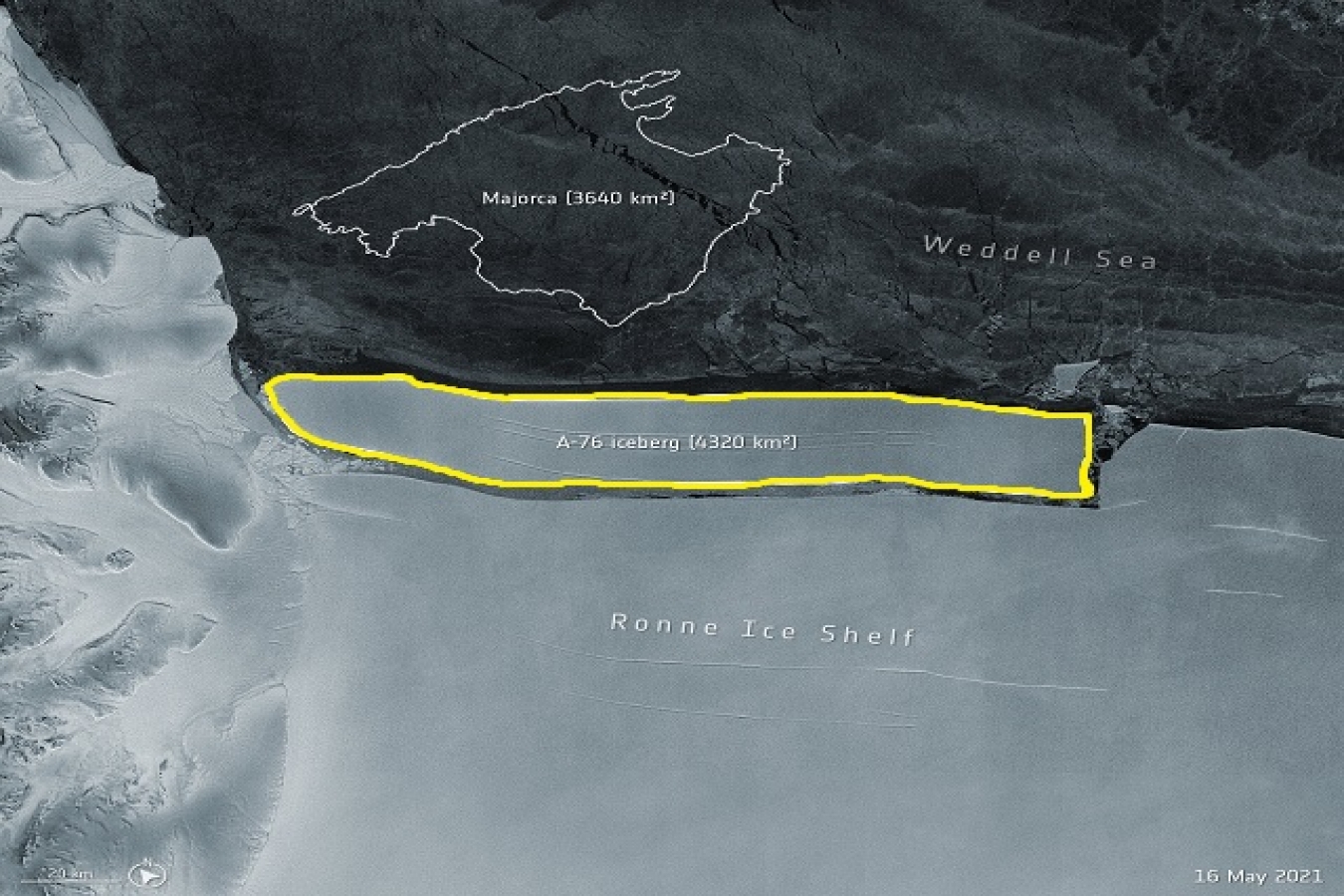

 6:29:50
6:29:50  2022-03-01
2022-03-01  516
516

The world's largest iceberg completely melted last year.
Now scientists are working out the damage.
The megaberg, known as A68, broke free from Antarctica in 2017.
Initially, it was 4320KM2 big, 8 times the size of New York City, and contained trillion tones of ice.
Scientists hoped it would take up to a decade to melt, but it took less than 4 years .
Now, researchers at leading Universities are counting the environmental coasts.
At its peak of melting, the iceberg was releasing 1.5 billion tons of freshwater into the sea everyday.
that's 150 times as much as the UK uses daily.
All this freshwater has the power to Alter ocean currents.
The iceberg also deposited iron, minerals and organic matter, disrupting ocean ecosystems.
In its wake, the team has detected a change in flora and species of phytoplankton, which are microscopic algae that play a vital role in CO2 absorption.
The team is still analyzing data from robot gliders placed near the berg.
3 trillion tons of ice have melted in Antarctica since the 1990s.
And the melt rate is accelerating as the plant warms.
At COP26, 151 nations agreed a raft of new measures to tackle climate change.
But to limit global warming to 1.5C
We need to halve emissions by 2030.
Reality Of Islam |
|
 9:3:43
9:3:43
 2018-11-05
2018-11-05
10 benefits of Marriage in Islam
 7:5:22
7:5:22
 2019-04-08
2019-04-08
benefits of reciting surat yunus, hud &
 9:45:7
9:45:7
 2018-12-24
2018-12-24
advantages & disadvantages of divorce
 11:35:12
11:35:12
 2018-06-10
2018-06-10
 6:0:51
6:0:51
 2018-10-16
2018-10-16
 6:0:8
6:0:8
 2023-03-19
2023-03-19
 10:35:40
10:35:40
 2022-05-26
2022-05-26
 2:33:4
2:33:4
 2023-02-15
2023-02-15
 7:45:39
7:45:39
 2018-06-21
2018-06-21
 3:43:50
3:43:50
 2022-11-05
2022-11-05
 9:39:36
9:39:36
 2022-12-28
2022-12-28
 8:30:23
8:30:23
 2022-03-03
2022-03-03
 5:41:46
5:41:46
 2023-03-18
2023-03-18
| LATEST |